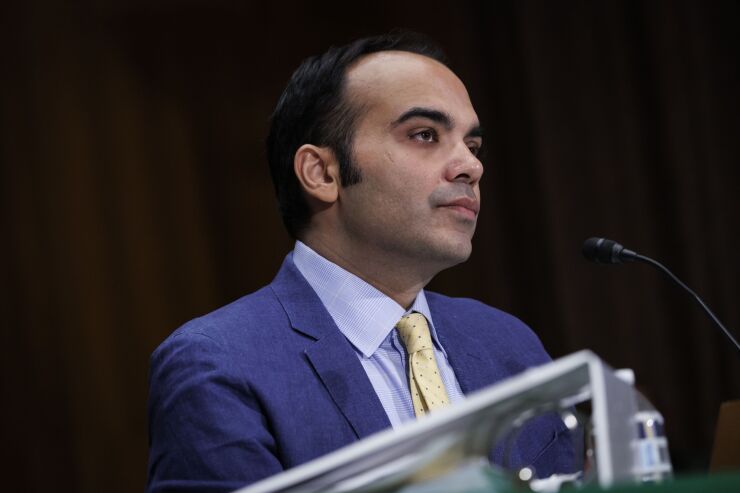
Seven bank trade groups want more time to comment on a Consumer Financial Protection Bureau proposal to cut credit card late fees to as low as $8.
The trade groups asked CFPB Director Rohit Chopra in a letter this week for a 60-day extension until June 3, or until 90 days after the proposed rule is published in the Federal Register, whichever is later. The groups cited the substantial amount of data about the amount and number of late fees paid by credit card users that the CFPB requested as one of the reasons they need more time to comment on the plan, which they oppose.
"Industry intends to provide the CFPB with data in response to the agency's requests," the bank trade groups said. "Collecting data from large and small [credit card] issuers, as well as from consumers, and performing the requisite analysis, will require substantially more time than is being provided."
Banks and credit card issuers oppose the CFPB's plan
Hundreds of small community banks and credit unions claim they will suffer harm if the CFPB caps late payments on credit cards at 25% of the minimum payment. The trade groups have said the CFPB is running afoul of a requirement in the Dodd Frank Act to convene a
In February, the CFPB proposed amending Regulation Z, which implements the Truth in Lending Act, to ensure that credit card late fees are "reasonable and proportional." The CFPB's proposal would adjust the current "safe harbor" dollar amount for late fees to $8 and eliminate a higher "safe harbor" amount for subsequent violations. The proposal also would eliminate a current provision that allows financial institutions to raise late fees annually in line with inflation. Overall, the proposal would limit late fees to 25% of the required payment.
Figuring out the impact of the proposed changes will require "considerable time," the groups said. The seven trade groups include the American Bankers Association, Bank Policy Institute, Consumer Bankers Association, Independent Community Bankers of America, National Association of Federally-Insured Credit Unions and National Bankers Association.
Without more time, the groups said, the CFPB risks "an incomplete administrative record and arbitrary agency action, and likely will result in unintended consequences, adverse consumer and small-business impact, and ultimately create flawed public policy."





